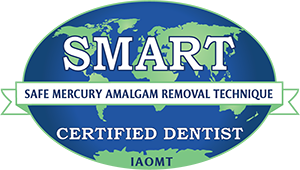What Happens During the Four Stages of Sleep?
November 6, 2024

Every time you doze off to sleep, you embark on a journey. Your mind and body travel through four unique stages of sleep, each of which is important for making sure that you benefit from your nightly rest. What exactly happens during each stage, and how might sleep apnea disrupt this important process? This blog post provides some fascinating information.
Stages 1 and 2: Light Sleep
When you first drift off to sleep, you enter the initial stage of the sleep cycle. Your heartrate, breathing, and eye movements all slow down. However, you might retain an awareness of your surroundings. A loud noise or bright light could easily arouse you — you might not even realize that you had been asleep!
After approximately 5 – 10 minutes in stage 1, you move on to stage 2. You become much less aware of the environment around you, and your body temperature dips slightly. Your eye movements cease. Your brain starts to produce a special type of wave, known as sleep spindles. Typically, people spend about half of their total sleep time in stage 2.
Stages 3 and 4: Deeper Sleep
The third and fourth stages of sleep are considered “deep sleep.” During stage 3, it becomes much more difficult to awaken you. Your body is hard at work repairing tissues that incurred damage throughout the day, and your brain is consolidating new memories. There is also an increase in cytokine levels. Cytokines are a special type of protein that are a key part of your immune system.
Following stage 3, you transition into stage 4, which is also known as rapid eye movement (REM) sleep. Your blood pressure and heartrate increase, and your breathing becomes shallower. Your brain is still working to consolidate memories. You are also more likely to experience dreams during REM sleep.
Sleep Apnea and the Sleep Cycle
On average, it takes 1 – 2 hours to go through all four stages of sleep; the process should repeat itself multiple times in a single night. Sadly, that is not the case for people with sleep apnea. If you have this disorder, you may stop breathing dozens or even hundreds of times within a 7 – 8 hour sleep period.
Each time you stop breathing, your body goes into panic mode. You go through microarousals each time you start breathing again, which can prevent you from spending enough time in the deeper stages of sleep. As a result, you may feel constantly exhausted. Your memory, emotional health, and overall well-being may also take a turn for the worse.
The good news is that sleep apnea is highly treatable. Dr. Thomas and our team can evaluate your case and provide advice to help you get on the road to higher-quality rest.
The sleep cycle is an amazing aspect of how the human body works! Protecting the quality of your nightly rest can help you get the most out of it.
Meet Dr. Thomas
Dr. Preetha Thomas is a knowledgeable and experienced holistic dentist in Southlake, TX. She is passionate about helping patients to enjoy the best health possible. To that end, she is proud to offer sleep apnea therapy. To learn more about how she and our team may be able to help you enjoy higher-quality rest, contact Enclave Dental at 817-912-1218.
No Comments
No comments yet.
RSS feed for comments on this post.
Sorry, the comment form is closed at this time.




